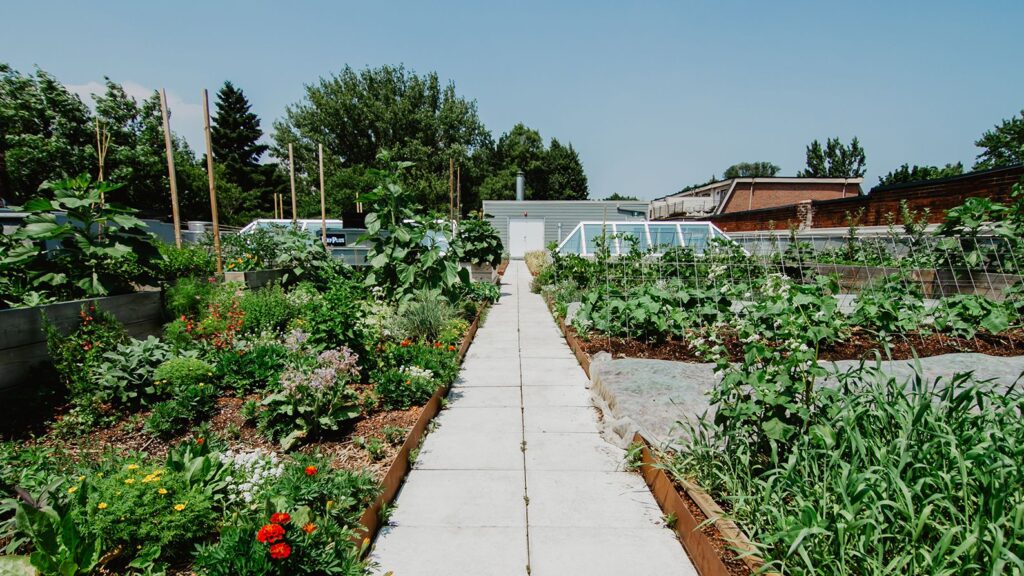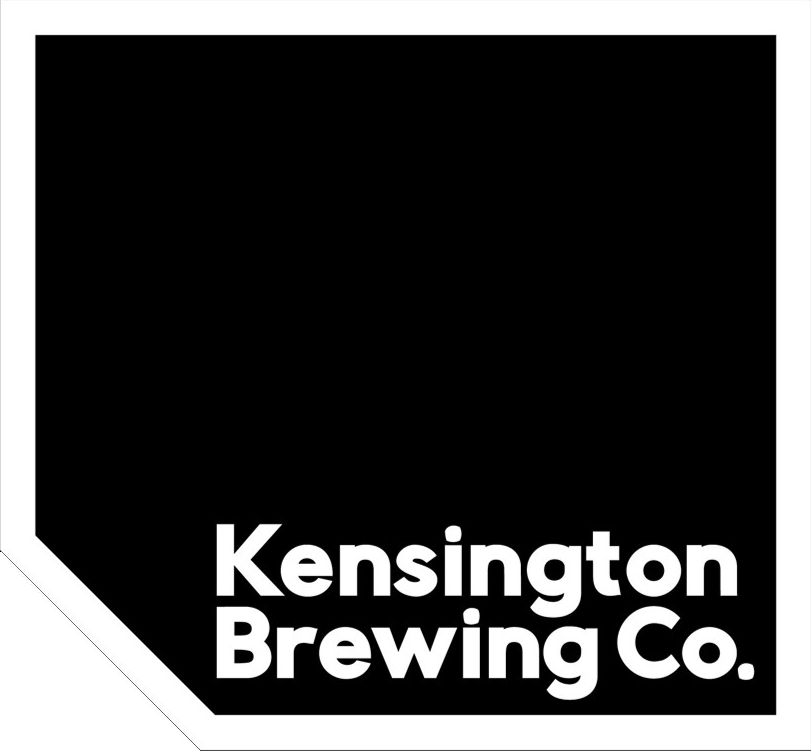Written by: Jessica Shadlock
You know the saying: Save the Earth; it’s the only planet with beer! However, from the amount of water used in the brewing process to the packaging, to transporting ingredients and product, unfortunately brewing is not the most sustainable industry. But there are some creative ways breweries are working around or offsetting these issues. In honour of Earth Day, we checked in with a few Ontario breweries doing their part to make craft beer a little more green. Big thanks to Jenn at Beau’s, Stephen and Teddy at Karbon Brewing, Kyle and Kristen at Half Hours on Earth and Max, Micheline and Lindsay at Avling for chatting with us!
AVLING KITCHEN & BREWERY: CULTIVATING HYPER LOCAL INGREDIENTS
Though Avling has been open less than two years, it’s quickly become a staple in Leslieville in Toronto for exceptional and experimental food and beer showcasing Canadian flavours and locally farmed ingredients.
Tell us about the rooftop at Avling. How does it work?
Our rooftop is a 4000 square foot green roof, and it’s unique because it grows food crops that are used for both our kitchen and brewery. It uses green roof technology and is equipped with a special membrane and a unique growing medium that is lightweight and allows water drainage.
The rooftop uses the principles of organic and sustainable agriculture like crop rotation, cover crops, compost and low-till growing methods with a focus on soil health and biodiversity.
We have 2 dedicated farmers, Micheline Lalonde and Lindsay Sangster, who manage the roof to ensure a bountiful harvest from May to October. Carrots, salad greens, tomatoes, hot peppers, garlic, squash, cucumbers and zucchini are grown and used in the kitchen and are made available through sale in the bottle shop and at pop-up markets. We also grow a selection of crops for the brewery including marigolds and pineapple sage, and even some hops.
We host a variety of workshops throughout the season, everything from planning a garden to seed saving, with the goal of teaching and empowering as many people as possible to grow more of their own food themselves.
How did this idea come to be? Was this part of the plan for your brewery from the beginning?
The roof farm was a part of the plan for the brewery from very early on. It represented a massive opportunity to create unique, on-site circularity. From the brewery in the basement to the kitchen on the ground floor and farm on the roof, each department is able to make use of waste from another area of the business. We are constantly looking for more ways to grow and deepen those connections.
Why are sustainability initiatives important to Avling as a company?
The American chef, Dan Barber once pointed out that the ingredient grown or raised in the most responsible, sustainable way, is, necessarily, the most delicious. I have to admit, as someone who loves eating and drinking, one of the main reasons to focus on sustainability is because we want to serve the best food and drink possible. However, flavour, pleasure, and the act of sharing a meal are powerful forces that, if harnessed, could be very impactful tools for educating, promoting and growing a more equitable, circular food economy.
Do you have any future plans for the brewery related to sustainability and environmental impact?
There are lots of different ways that we’re pursuing sustainability day-to-day and we’re always looking for ways to build on them. For example, all of our take-out containers, cups, and even cutlery, are completely compostable products; we are Bullfrog Power certified; and we’ve partnered with Re-think Resource to help divert all of the waste from the brewery and restaurant.
We have several exciting plans on the horizon, too. One project involves harnessing the excess heat from the brewery to extend the growing season on our roof, possibly year-round. There is also a more ambitious Phase 2 plan that involves largely expanding our beer and agricultural production at a second site. But let’s not get ahead of ourselves…
And just for fun: which of your beers should SOBDL readers pick up this spring?
Orpheus! It was aged in French oak barrels with orange wine skins from our friends at Trail Estate Winery in PEC, and marigolds that were harvested from our own rooftop last summer. It’s a beautiful pale orange in colour, light and tart on the palate, and truly a perfect beer for Spring and Summer.
Orpheus is available for local home delivery and shipping across Ontario on Avling’s website.
BEAU’S: BREWING CANADA’S MOST SUSTAINABLE BEER
Beau’s has been a leader in the industry for more than a decade and was the first brewery in Canada to be certified as a B Corp (a certification for businesses who prioritize social responsibility.) Though they’ve expanded considerably, they’re still based in the adorable small town of Vankleek Hill, just outside Ottawa.
Tell us about Beau’s Local Organic. What makes it Canada’s most sustainable beer?
Local Organic is the only beer in Canada that is both certified organic and certified carbon neutral. Additionally, it’s made with 100% local Ontario hops and 100% local Quebec malts, and is brewed with green electricity. We have taken a holistic approach to sustainability, looking at the entire lifecycle of this beer, and taking care to reduce its carbon footprint wherever possible at each step of the way.
For example:
- Hops and malts are grown and processed within Ontario and Quebec
- Ingredients come from Certified Organic farms
- Brewed with green electricity
Because certain carbon emissions are unavoidable in the process of brewing, packaging and delivering beer, Beau’s will be investing in Canadian carbon offset projects equal to all carbon emissions associated with the lifecycle of this beer.
How did this idea come to be? Was having a beer that’s both organic and carbon neutral part of the plan for your brewery from the beginning?
Sustainability has been on our minds from day one. But sustainability is always a journey, not an end goal. We have been working with local organic hop and malt suppliers off and on with our seasonals for many years, and this beer grew out of those great relationships. Certifying the beer carbon neutral was the last element to come into the mix, and we knew doing a life cycle analysis would be a huge effort. Having a great partner like Carbonzero made it feel manageable to approach, so we went for it.
Why are sustainability initiatives important to Beau’s as a company?
In addition to being a sustainability-minded business just being the right thing to do, you need a healthy planet and healthy communities to have a healthy craft brewery. At Beau’s, we recognize that the current climate crisis is one of the most significant threats of our lifetime. Climate change is not inevitable – each of us can make personal choices to lead to collective action. Personally, I have been very inspired by David Attenborough and his message that things are super bad right now, but there is still hope if we can all just do our part. I know my co-workers all have their personal reasons to care about climate change, and working on bringing this beer to life was an awesome way to live our values out loud.
Do you have any future plans for the brewery related to sustainability and environmental impact?
We do – the great thing about a life cycle analysis on a product is that it shows you very clearly where you can try to do better. By next spring we will have a year’s worth of data on what elements of making Local Organic are having the most carbon impact, which lets us dig into why. Going carbon negative requires you to offset double the carbon you create, so that might be a lofty goal, but at Beau’s you never say never. We will also be looking forward to seeing the reforestation carbon offset projects we are investing in take root and grow … literally!
Which of your beers should SOBDL readers pick up this spring?
Well Local Organic, of course! Here’s the neat thing – it’s got the sustainability angle, but Local Organic is an interesting beer in and of itself, because it’s a truly local beer that can only be made right here. We started with the Quebec malts and Ontario hops, and then tasting those and playing around with them, we built the beer backwards from there. There are some interesting phenolics (fruit and a hint of spice) that come part and parcel with the beer, and I think our brewing team did an amazing job of building a recipe that accommodates and even highlights these characteristics.
You can find Local Organic at LCBOs across Ontario, or on the Beau’s Website
HALF HOURS ON EARTH: REDUCING & OFFSETTING EMISSIONS
Located in the little town of Seaforth Ontario, Half Hours on Earth is a small, two person operation that is synonymous with incredibly unique funky and sour beers.
Tell us about your certification as Canada’s first carbon neutral brewery! What does being carbon neutral mean?
Ideally carbon neutral would be not producing any greenhouse gases or emissions. However, that’s a challenge for any small business as far as costs go. So, the best we can do at the moment is take gradual steps in reducing emissions, while at the same time offsetting any emissions by planting trees through Tree Canada’s Grow Clean Air program, where we have our certification.
How did this idea come to be? Was achieving this part of the plan for your brewery from the beginning?
We’ve always been mindful of the environment and the importance of doing what we can to reduce energy waste, using recyclable materials when possible, etc. It was sort of a natural progression. We started our initiatives by partnering with One Percent for the Planet in 2019, where we donate 1% of our annual sales to environmental non-profits. From there, we wanted to commit ourselves to being carbon neutral. While we are currently planting trees to offset our small environmental footprint, the end goal is to be completely carbon neutral without the use of offsets. But we’ll continue to plant additional trees regardless.
Why are sustainability initiatives important to Half Hours on Earth as a company?
Runaway loss of polar ice, overheating and acidification of oceans, soil erosion, biodiversity collapse, the extinction of species, etc, etc. No beer on a dead planet.
What are your future plans for the brewery related to sustainability and environmental impact?
Our latest initiative for 2021 is to reduce delivery emissions, a growing issue as more and more beer is now being shipped. So far this year we have delivered over 40% of our beer with our zero-emissions electric vehicle, our goal is to hit 50% by year end. For every order we can’t personally deliver, we will plant one tree.
While not entirely brewery related, we also opened an environmentally focused eco-store side project last year, worldlet.ca. The goal of Worldlet is to be a convenient shop for low-waste everyday items, and this has been a large focus for us as well this year. Here’s hoping for reduced solar energy costs in 2022 for next year’s initiative!
Which of your beers should SOBDL readers pick up this spring?
Our latest releases, Polar Lightning Strike & Fleet Awakening, are a couple of tart, dessert-style pale ales. Comfort beers for climate anxiety.
Both of these beers are available for local delivery and Ontario-wide shipping at Half Hours on Earth’s website.
KARBON BREWING: BUILDING A CARBON NEGATIVE BREWERY
Founded in 2020, Karbon Brewing is looking to shake things up in the industry by looking for new ways to make brewing more sustainable, one beer at a time. Their goal is to be fully carbon negative by 2024.
Tell us about your plans to create a carbon negative brewery! What does being carbon negative mean?
Karbon Brewing is looking at sustainability and brewing from a different perspective. We are viewing things from an emissions standpoint; creating the technological innovations needed to build a truly sustainable brewery and business. While planting trees and using carbon offset initiatives are great (we are planting over 2000 Trees this year in Sudbury Ontario as part of Tree Canada’s National Greening Program), we want to truly get to the root of the problems and find solutions.
Carbon Negative is when you not only reduce your emissions, but you also actually remove more Co2 from the atmosphere than you produce.
It is one step farther than Carbon Neutral and requires some interesting innovations and offsets to achieve. To be fully Carbon Negative, you must get to scope 3 emissions mapping, which includes everything from agriculture, transportation, manufacturing and end of life cycles.
How did this idea come to be? Was achieving this part of the plan for your brewery from the beginning?
Sustainability and becoming Carbon Negative was the core foundation of our business. So much so that we called ourselves Karbon Brewing to draw a line in the sand. The team started to look at the solutions that were needed to impact climate change and combined that perspective with their background in hospitality/brewing. Everything aligned to start us on our journey. We feel that a lot of communities are built, and conversations are had over a few beers, so if we can get people talking about some of these hard topics, that is what is most important to us.
Why are sustainability initiatives important to Karbon Brewing as a company?
We think that sustainability should be important to everyone at this point. We have seen the science and what impact we are having on our planet/people. Instead of waiting until 2030 or 2050 goals implemented by most firms and governments, we decided to try to solve some of these things sooner, and then share that with not only our Ontario Brewing industry, but the international community.
We also want to show that you can build a successful business while caring about social and environmental values, and that a small business can have an impact. This should be the future of business and brewing; we are trying to push that boundary. It is important to note that marginalized communities are generally much more affected by climate change. Therefore, we also need to care about the social impacts, and we have some exciting projects in the work around the topics of clean drinking water, equity, diversity etc.
What are your future plans for the brewery related to sustainability and environmental impact?
Our plans are to build out a fully Carbon Negative facility in the next few years, convince consumers that “Green Beer” is important and continue to find innovative solutions to the problems every brewery is facing (packaging, transportation, supply chain etc.). We also plan to work with the other industry leaders likely featured in this blog to share and allocate resources to make Ontario/Canada the leader in sustainable brewing. We will continue to work with our partners such as One Percent for the Planet, Tree Canada, Bullfrog Power, Persefoni and many others to track, offset energy consumption, donate for impact and plant trees.
Which of your beers should SOBDL readers pick up this spring?
Of course! We can’t forget about the delicious beer. For all the science and sustainability talk, we also equally love a good beer. Bernardo our Brewmaster has brewed in 3 continents, trained in Germany, and has been working on creating some exciting styles for us. I would highly recommend our One World Wit. Wheat beers are an underrated category of crushable fruity beers and will be worth checking out this summer. One World is a Belgian style with notes of orange and coriander, and sits at 5%, with an IBU of 6.
Check out Karbon Brewing’s website to find the bars/bottle shops currently carrying One World Wit.
HONOURABLE MENTIONS:
We couldn’t resist highlighting a few more of our favourite green innovations in craft brewing – every little bit helps!
Cowbell Brewing – Closed Loop Brewing System
Cowbell has a number of sustainability initiatives at their brewery in Blythe, Ontario, but their brewing system in particular was built with sustainability in mind. They use a Rectification Boil System (a first in North America!) that increases the efficiency of the brew kettle by 80%. This means more beer can be brewed in less time using less energy. They also have a closed loop brewing system, where waste water from the brewery is treated and released back into the ground on-site.
Elora Brewing Co – Compostable 6 Pack Rings
Elora Brewing Company in Elora, ON has made a small change that makes a huge impact. Plastic six pack rings/snap holders are everywhere, but to help cut down on these Elora has switched to biodegradable rings from E6prs. They are fully compostable and are not toxic if animals happen to ingest them.
Henderson Brewing Co – Milk Crate Program
Henderson Brewing have come up with an environmentally friendly alternative to the cardboard/plastic on your standard beer case: milk crates! If you’re in their local delivery area, you can order your case of beer from Henderson in a returnable crate. Plus the crate fits four more cans than your standard 2-4!







